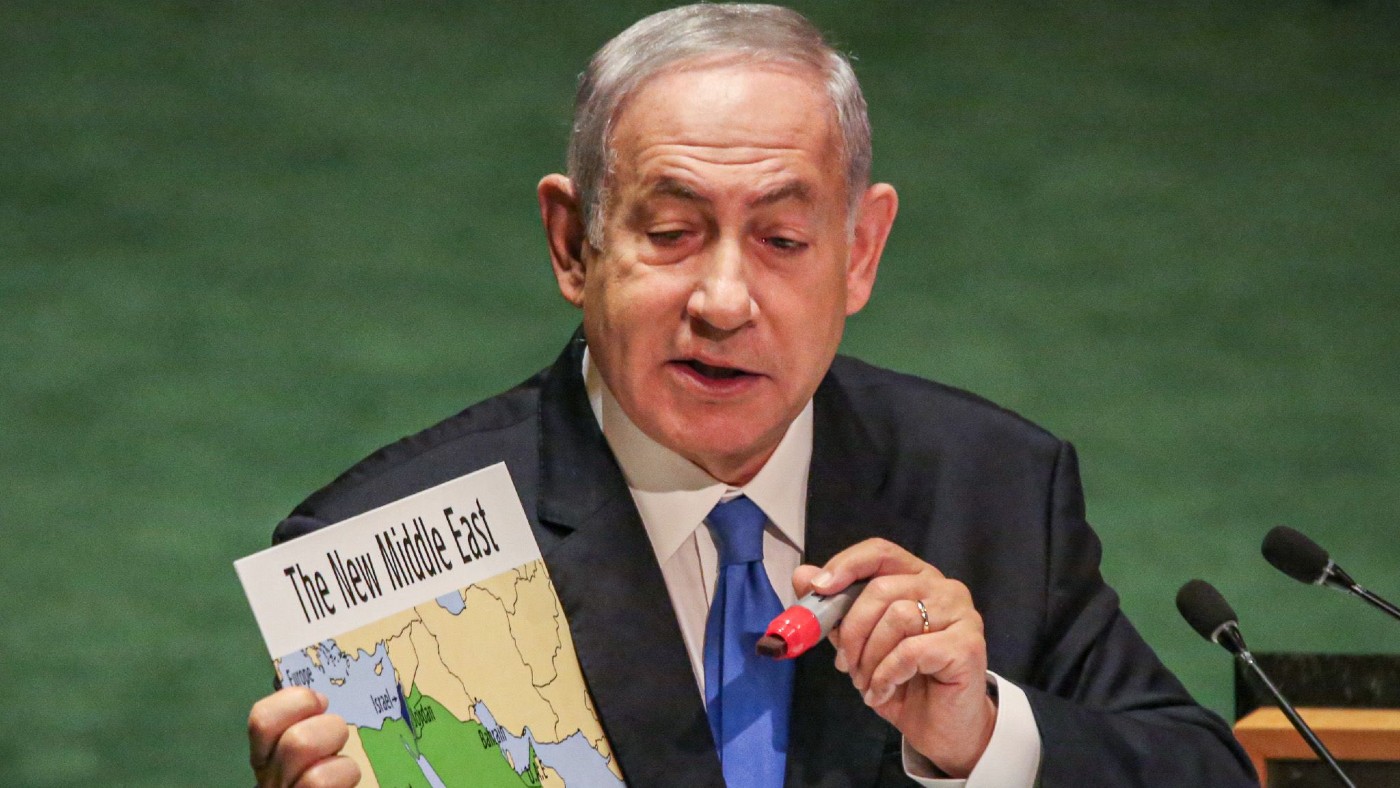A deal that could change the face of Middle East politics
Saudi Arabia has signalled it may be ready to normalise ties with Israel as part of a US-brokered deal

A free daily email with the biggest news stories of the day – and the best features from TheWeek.com
You are now subscribed
Your newsletter sign-up was successful
Like most Arab countries, Saudi Arabia has never recognised Israel since its founding in 1948.
In principle, it will go on ostracising Israel until it permits the creation of a Palestinian state, said Patrick Kingsley in The New York Times. For decades, relations between the two countries have therefore been scarred by mutual distrust. But all that could be about to change.
In recent months, Riyadh has signalled it may be ready to normalise ties with Jerusalem as part of a US-brokered deal, a deal that could "pave the way for the rest of the Muslim world to follow suit". Hopes of a breakthrough were further raised last week, with the first ever public visit by an Israeli minister to Saudi Arabia, and a return visit by a Saudi envoy to the Israeli-occupied West Bank. Israeli PM Benjamin Netanyahu claims the two countries are now "at the cusp" of a deal.
The Week
Escape your echo chamber. Get the facts behind the news, plus analysis from multiple perspectives.

Sign up for The Week's Free Newsletters
From our morning news briefing to a weekly Good News Newsletter, get the best of The Week delivered directly to your inbox.
From our morning news briefing to a weekly Good News Newsletter, get the best of The Week delivered directly to your inbox.
'A game changer'
Such an agreement could be a "game-changer" in so many ways, said Ruth Wasserman Lande in The Jerusalem Post. It would "legitimise Israel in the eyes of a long list of Muslim countries", thereby allowing Jerusalem to promote its interests in the region. It would mean Riyadh could get US support in its efforts to develop a civilian nuclear programme. It would strengthen defence ties between the countries, and in doing so reduce the threat posed by Iran's nuclear programme. And it would give Joe Biden a major foreign policy breakthrough to promote ahead of next year's US presidential election.
Whatever the merits of this deal, said The Economist, it won't be an easy one to secure. Many Saudis are sceptical of closer ties with Israel, and Riyadh's expressed desire to win concessions on behalf of Palestine is anathema to many in Netanyahu's hardline government. As for Biden, he'll struggle to sell the prospect of a Saudi nuclear programme to the US public, and will also face stiff opposition from progressives in his own party, who "abhor the Saudis' human-rights record".
'Any diplomatic agreement preferable to war'
Undeniably, it would be a "rotten deal with a rotten regime", said Gideon Levy in Haaretz (Tel Aviv). Only two years ago, the US was accusing Riyadh of responsibility for the murder in Istanbul of journalist Jamal Khashoggi. And like its predecessor, the 2020 Abraham Accords, which normalised relations between Israel, Bahrain and the UAE, it will do nothing to address the suffering of the Palestinians. But granted all that, "history has taught us that any diplomatic agreement is always preferable to the alternative of war". That is why we must support the Israeli PM's efforts to bring it about, "even if his name is Benjamin Netanyahu".
A free daily email with the biggest news stories of the day – and the best features from TheWeek.com
-
 The environmental cost of GLP-1s
The environmental cost of GLP-1sThe explainer Producing the drugs is a dirty process
-
 Greenland’s capital becomes ground zero for the country’s diplomatic straits
Greenland’s capital becomes ground zero for the country’s diplomatic straitsIN THE SPOTLIGHT A flurry of new consular activity in Nuuk shows how important Greenland has become to Europeans’ anxiety about American imperialism
-
 ‘This is something that happens all too often’
‘This is something that happens all too often’Instant Opinion Opinion, comment and editorials of the day
-
 Democrats push for ICE accountability
Democrats push for ICE accountabilityFeature U.S. citizens shot and violently detained by immigration agents testify at Capitol Hill hearing
-
 Fulton County: A dress rehearsal for election theft?
Fulton County: A dress rehearsal for election theft?Feature Director of National Intelligence Tulsi Gabbard is Trump's de facto ‘voter fraud’ czar
-
 ‘Melania’: A film about nothing
‘Melania’: A film about nothingFeature Not telling all
-
 ‘Bad Bunny’s music feels inclusive and exclusive at the same time’
‘Bad Bunny’s music feels inclusive and exclusive at the same time’Instant Opinion Opinion, comment and editorials of the day
-
 Greenland: The lasting damage of Trump’s tantrum
Greenland: The lasting damage of Trump’s tantrumFeature His desire for Greenland has seemingly faded away
-
 Minneapolis: The power of a boy’s photo
Minneapolis: The power of a boy’s photoFeature An image of Liam Conejo Ramos being detained lit up social media
-
 The price of forgiveness
The price of forgivenessFeature Trump’s unprecedented use of pardons has turned clemency into a big business.
-
 Reforming the House of Lords
Reforming the House of LordsThe Explainer Keir Starmer’s government regards reform of the House of Lords as ‘long overdue and essential’